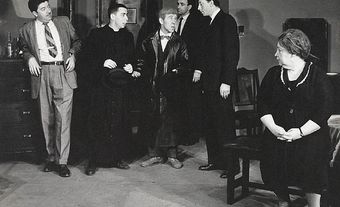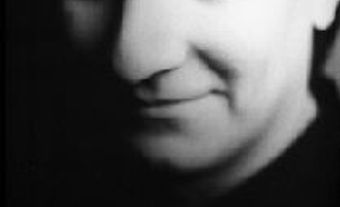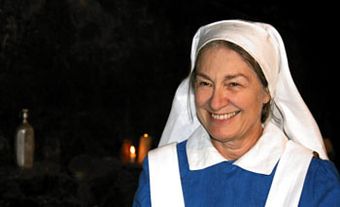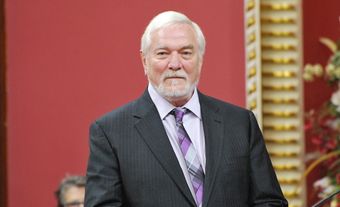Monique Mercure, née Émond, CC, actor (born 14 November 1930 in Montreal, QC; died 16 May 2020 in Outremont, QC). The career of this distinguished actress, among the most visible on Quebec and Canadian stages and screens, has broad international appeal. Performing some one hundred major theatre roles in French and English, her spirit, intensity and hearty laugh made a mark on several television series and award-winning films.

Monique Mercure came from a family that valued art and learning. She received a religious up-bringing from the Sisters of Congrégation Notre-Dame, and then specialized in music. Her musical training at l'École Vincent- d'Indy in 1949 intended her for a career as a cellist, and she later studied with Nadia Boulanger in Paris. She also studied dance with Ludmilla Chiriaeff. In 1949, she married the composer Pierre Mercure, and they had three children before separating in 1958, after which she devoted herself to acting.
Considering herself self-taught, Monique Mercure nevertheless attended l'École Jacques-Lecoq in Paris (1957 and 1958), and the Montreal Drama Studio (1959 to 1962). She appeared onstage at the Théâtre du Nouveau Monde (TNM) in 1959 in Aeschylus' Les Choéphores/The Libation Bearers directed by Jean-Pierre Ronfard, then divided her time between the classical and modern repertoire including Brecht (three productions of Threepenny Opera at the TNM, 1960, 1961, 1991; Mother Courage, at the Nouvelle Compagnie Théâtrale, 1984) and Genet (Les Bonnes three times in three roles), and plays by Québécois authors such as Michel Tremblay (Les Belles-Sœurs, TNM, 1971 dir. André André Brassard). She also performed Tremblay in Ottawa, Québec, Paris and Toronto, including his À toi, pour toujours, ta Marie-Lou/ Forever Yours, Marylou in English at the Lennoxville Festival (1977) then on a European tour; and L'Impromptu d'Outremont (TNM, 1980).
An energetic and determined performer and a bold and committed woman, Monique Mercure participated in a great many theatre and film ventures with directors Jean Gascon, Jean-Louis Roux, Michelle Rossignol, René Richard Cyr, Alice Ronfard and Lorraine Pintal, and producers Claude Jutra (À tout prendre, 1963; Mon oncle Antoine, 1971; Pour le meilleur et pour le pire, 1975; La Dame en couleurs, 1984), Fernand Dansereau, Francis Mankiewicz, Jean-Claude Labrecque, Yves Simoneau, Robert Altman, Claude Chabrol, David Cronenberg (Naked Lunch, 1991, Genie Award for best supporting actress) and François François Girard (The Red Violin, 1997), among them. In 1977, she was the first Québécoise to win a Palme d'Or for best actress at the Cannes Festival in the role of Rose-Aimée in Jean Beaudin's J. A. Martin, photographe.
In 1993, Monique Mercure received a Governor General's Performing Arts Award, the Prix Denise-Pelletier, and the Prix Gascon-Roux for Hécube in Euripides' Les Troyennes/Trojan Women at the TNM. She moved audiences deeply as Albertine at 70 in Tremblay's Albertine, en cinq temps, directed by Martine Beaulne at Espace GO in 1995, later adapted as a TV movie. She was the lead in the ongoing television series Providence. Named an Officer (1977) and Companion (1994) of the Order of Canada, Monique Mercure was general director (1991-1997) and artistic director (1997-2000) of the National Theatre School of Canada. In 1998 she received an honorary doctorate from the University of Toronto.

 Share on Facebook
Share on Facebook Share on X
Share on X Share by Email
Share by Email Share on Google Classroom
Share on Google Classroom






